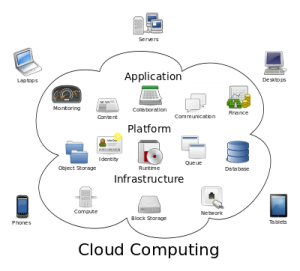-
Jessica Cracchiolo wrote a new post on the site MIS4596 – Section 3 Spring 2015 9 years, 6 months ago
-
Jessica Cracchiolo wrote a new post on the site MIS4596 – Section 3 Spring 2015 9 years, 7 months ago
I read an article in Forbes that talks about 9 things you should tell your boss at your next performance review. Forbes asked 9 entrepreneurs from the Young Entrepreneur Council what they wish their employees would tell them at their next performance review.
1) What makes you happy
2) How you want to grow
3) What you would like to work on
4) How you picture the future
5) How do you want to contribute to the company’s success
6) What you need to do for your best work
7) Which new technologies would work a lot better
8) What you want your boss to stop doing
9) What is not working, and how to make it better
These questions will help you in your next performance review with your boss and it shows you are dedicated to the success of the company and it also shows you are a dedicated employee. These questions will also help your boss become a better leader.
What do you think about this article and these questions? Do you think these questions should be answered by your boss after you have been with the company for a couple of years?
-
Jessica Cracchiolo wrote a new post on the site MIS4596 – Section 3 Spring 2015 9 years, 7 months ago
According to The Washing Post, “Research shown to be ineffective, unreliable and unsatisfactory for seemingly everyone involved. They consume way too much time, leave most workers deflated and feel increasingly out of step with reality.”
Deloitte has redesigned its whole performance management plan and how it will evaluate its employees. Deloitte’s is getting rid of nonsensical attempts to build similar goals for everyone in the organization. The company also noticed they were spending two million hours each year assigning numerical ratings to each employee so they got rid of that too.
Overall, Deloitte is replacing its old performance system with four engaging questions they are asking managers to look at instead. Washing Post stated, “At the end of every project, or once a quarter if employees have long-term assignments, managers would answer four simple questions — and only four. The first two are answered on a five-point scale, from “strongly agree” to “strongly disagree;” the second two have yes or no options:”
1. Given what I know of this person’s performance, and if it were my money, I would award this person the highest possible compensation increase and bonus.
2. Given what I know of this person’s performance, I would always want him or her on my team.
3. This person is at risk for low performance.
4. This person is ready for promotion today.
This new performance allows how to develop employees in the future based on their performance.Based on this article/post, do you think organizations should start following this new approach? Would you prefer to be evaluated on these questions or have a standard performance evaluation review? Why?
-
I think I prefer qualitative questions like in Deloitte’s new approach. Putting a numerical value on someone’s performance can sometimes be really difficult, and the evaluator would therefore waste their time trying to quantify their performance, even though they know in their head exactly how they performed. I also think the feedback would be more useful to an employee to see an answer to those four questions as opposed to a ranking, especially given how large Deloitte is.
-
-
Jessica Cracchiolo wrote a new post on the site MIS4596 – Section 3 Spring 2015 9 years, 7 months ago
http://rogerlmartin.com/thought-pillars/integrative-thinking
Roger Martin coined the word “integrative thinking” when he observed in his multiyear study of exceptional successful leaders. He found a consistent pattern to the leaders thinking approach when they were faced with challenging choices. In 2007, Roger published a book called The Opposable Mind: How Successful Leaders Win Through Integrative Thinking. The book describes the components of Integrative Thinking and provides a guide for those who want to manage their own Integrative Thinking capacity. Roger states, “Many people assume that Integrative Thinking is a skill which one must be born to demonstrate. This is definitively not the case! It is clear from this teaching experience that anyone who is willing to work at Integrative Thinking can develop the thinking pattern exhibited by the highly successful leaders that I studied.” I agree with Rogers statement because not every successful leader is born with every skill set to make them successful.
Do you think integrative thinking is an easy skill to learn? How much time do you think you need to put into learning the skill set of an integrative thinker?
-
Jessica Cracchiolo wrote a new post on the site MIS4596 – Section 3 Spring 2015 9 years, 7 months ago
This year was the Consumer Electronics Show 2015 (CES) filled with big bang disruptors. There were disruptors from incumbents and start-ups with the likelihood to cause big changes. The five most disruptive innovations were:
1) Transportation – Autonomous Vehicles
2) Health and Fitness – The Quantified Self
3) Manufacturing – 3D Printing and Robotics
4) The Internet of Things
5) Augmented Reality
I found this article very interesting because the top five most disruptive innovations at the CES were covered in our class through our case analysis. Two of the five disruptive innovations I found amusing were the autonomous vehicle and 3D printing. I would have never thought in a million years we would have a self-driving car. When I listened to the presentation in class I was very fascinated with the information. My case analysis was on 3D printing which I also thought was interesting because I never knew much about the product. After reading this article, I learned a lot more about 3D printing and the new features. If technology is this advanced in 2015, I can only imagine how advanced technology will be 30 years from now.
The disruptive innovations at the CES fall in the “early market experiment stage of big bang disruptions.” According to Forbes, “Some–perhaps most of them–will never make it to mainstream success. But even those that don’t succeed send a strong signal to incumbents of imminent disruption when some entrepreneur hits on the right combination of new technologies and business models.”
What are your thoughts on this years Consumer Electronic Show? Do you think the innovations listed in this article and what we discussed in class will make it to mainstream success? Why or why not?
-
I think autonomous vehicles have the potential to make it to mainstream success, and I agree with its position as #1 on the list. My belief is that autonomous vehicles will inevitably become mainstream, not because of successful business pitches, but because of necessity. Over 1.2 million people die unnecessarily each year due to automobile-related accidents, and many consumers recognize the extreme safety implications of having vehicles become autonomous. In the same sense that medicine is a necessity and consumers find value in curing their ailments, consumers, in my opinion, will WANT to have safer automobiles in order to protect their own lives, even if it means paying a pretty penny. The technology already exists for autonomous vehicles, it just needs to get ready for mass market. Of course, the roads will never truly be 100% safe unless EVERY vehicle is autonomous (which reminds me of a social movement called the Zeitgeist Movement that proposes that society should adopt this), which is another issue to eventually tackle, but in just 20 years this technology has the capability to completely disrupt the market and the automobile industry.
-
-
Jessica Cracchiolo wrote a new post on the site MIS4596 – Section 3 Spring 2015 9 years, 8 months ago
-
Jessica Cracchiolo wrote a new post on the site MIS4596 – Section 3 Spring 2015 9 years, 8 months ago
On Thursday we briefly talked about Uber’s business model. I find Uber an interesting and smart start up that is becoming very popular. I came across an article that talks about the “Uberization of work may soon be coming to your chosen profession.” a range of companies are trying follow Uber’s business model in order fields from grocery shopping, legal services, to even medicine. The benefit of Uberization is that technology can make your work life more flexible because it will allow you to fit multiple jobs around your schedule. An economist at the University of California stated, “this on-demand economy means a work life that is unpredictable, doesn’t pay very well and is terribly insecure.” Most people would rather have good, well-paying, regular jobs. Uber is a growing company and there are always new opportunities for employment.
What do you think about Uber’s business model? Do you think other fields that follow this business model will be successful? Would you want to work for a company like Uber? Why or why not?
-
I found the article you located to be intriguing, and I appreciated the balanced perspectives of Dr. Sundararajan—pro-uberization—and Dr. Reich—anti-uberization.
What worries me, to an extent, about the prospect of a largely “uberized” workforce, is the need for a worker to hold multiple jobs to compensate for the absence of full time employment with benefits. To fill financial gaps, workers will feel compelled to “[monetize] their […] downtime.” Over the prospect of simultaneously being “an Uber driver, an Instacart shopper, an Airbnb host and a Taskrabbit,” I prefer the prospect of full time employment complemented by professional or academic study, hobbies, and other activities.
I think that while other fields of business may successfully employ Uber’s business model, professional groups will indeed gain popularity as people realize the value of work stability in contrast with the flexibility of by-the-job payment.
-
-
Jessica Cracchiolo wrote a new post on the site MIS4596 – Section 3 Spring 2015 9 years, 8 months ago
Facebook launched “ThreatExchange” which is an Application Programming Interface (API) that allows companies to share information with each other about cyber attacks. A few companies including Facebook were demanding to stop a bonnet that was abusing their services to send spam. A manager of the Threat Infrastructure team at Facebook stated, “We quickly learned that sharing with one another was key to beating the botnet because parts of it were hosted on our respective services and none of us had the complete picture.” ThreatExchange is built on Facebook’s infrastructure and the information includes domain names, malware samples, and other indicators of compromise. The platform allows companies to share certain information that share similar issues. The goal of this platform is for organizations to learn from each other and make their systems safer. “That’s the beauty of working together on security. When one company gets stronger, so do the rest of us.”
Do you think ThreatExchange is a good way for companies to share their information regarding systems and hacking? Do you think only social media sites are going to use this platform? Or do you think other industries will also use this platform? Why?
-
I think that the Threat Exchange is a great idea. Hackers and other nefarious parties all share information and the best tips and tricks so it is smart for companies to share how to prevent these attacks. Also, if something works to get into one company the odds of it being tried on another is high so if they share how to prevent attacks it will help everyone in the long run. I am not sure whether only social media sites will use this particular application but if they do something similar to this needs to be developed for other industries. I think that other industries will be slower to adapting to this platform and may decide to use a different platform to do a similar thing. Traditionally non social media companies have been slower to adapt to changing social media trends.
-
-
Jessica Cracchiolo wrote a new post on the site MIS4596 – Section 3 Spring 2015 9 years, 8 months ago
-
Jessica Cracchiolo wrote a new post on the site MIS4596 – Section 3 Spring 2015 9 years, 9 months ago
-
A good way to practice giving a better presentation is to practice presenting in front of a group of people that will provide you with honest feedback and are good at presenting themselves. Presentations are extremely important in the real world because a lot of employers are looking for people who have great communication skills. By being a great presentation, it shows that you are a subject matter expert on the topic that you present, shows that you are a great communicator, and shows that you are confident in your abilities. They are definitely all important to having a successful career.
-
The best way for a person to improve their presentation skills is to first practice by themselves. Then once they are comfortable with the material, practice in front of a group of people. As Andre said, doing this will provide a person with valuable feedback that will improve their presentation. Although it’s important to practice the material a person is presenting, a person should not memorize what they are going to say because one slip up could end up ruining the whole presentation. A person should just have key points and an idea of what they are going to say. Another good idea is to think of any question people viewing the presentation might ask. That way the presenter can have answers ready ahead of time. As far as the importance of presentation skills, I think it depends on what you are doing or what your career goals are. If you are comfortable working a job alone where you report to one person you don’t really need good presentation skills. But if you want to leader others or create change within a company, you will need to have good presentation skills. Ultimately the importance of presentations skills depends on how high of a position you desire in a company, the high you climb in a company the more important presentation skills are.
-
I definitely think there is a growing emphasis on good presentation skills both in classrooms and in boardrooms. I have noticed that a majority of my upper-level courses at Temple have all had presentation components that were critical to success in that class, which I think closely mirrors how the ability to present well is critical to success in one’s career. What I’ve learned through my various courses as well as through being the TA for two presentation-intensive courses is that confidence is key. It’s true that you are always going to be more critical of yourself than the audience will be, so it’s critical not to get too stuck in your own head while presenting. Maintaining a clear, strong voice projects confidence, which in turn makes a presentation more interesting and more poignant. To better hone presentation skills, practice is essential. I find that I, personally, present better when I know the material really well. I would advise against memorizing, as that can cause one to stumble when trying to regurgitate information exactly. In terms of how to practice, I think practicing along at first and then in front of another person or trusted small group is a great way to get honest feedback.
-
-
Bruce Hohne joined the group Hohne Sec 002 Group 1 9 years, 9 months ago
-
Jessica Cracchiolo wrote a new post on the site Jessica Cracchiolo's E-portfolio 9 years, 11 months ago
This is the final week for the BAs and PMs. Wednesday morning all the PMs and BAs got together in the morning to practice the presentation. We also went over the scope a final time and the business rules. Unfortunately, I was not able to watch the BAs presentation but, I heard they did a great job. I am very proud of the BAs because they have come a long way and looking back from the second week of the semester, communication has increased. I believe we did a great job as a team on motivating the BAs and get them where they needed to be.
-
Jessica Cracchiolo wrote a new post on the site Jessica Cracchiolo's E-portfolio 9 years, 11 months ago
This week the BAs and PMs met on Wednesday and we went over the scenario. We discussed the role each BA was going to play in the video and we also went over some business rules. We have come along way as a team […]
-
Jessica Cracchiolo wrote a new post on the site Jessica Cracchiolo's E-portfolio 9 years, 11 months ago
Today I met with all of the BAs and we went over the business rules and scenario. The BAs have not acted out their skit yet but will do so next week. So far, they have only seven business rules but by the time the […]
-
Jessica Cracchiolo wrote a new post on the site Jessica Cracchiolo's E-portfolio 9 years, 12 months ago
The BAs prototype is coming along nicely and they have been working closely together on the project and the communication has been very good between the BAs and PMs. Eugene drew out the scenario and it was in […]
-
Jessica Cracchiolo wrote a new post on the site Jessica Cracchiolo's E-portfolio 10 years ago
This week the BAs designated each task amongst themselves. My team and I are going to send an email to the BAs early next week to see where they stand on the tasks they were each assigned and make sure they complete the work. Howard told his team members he was going to show up to todays 1pm meeting but he ended up not coming and the only BA that was present was Mike. Mike has started the prototype and thus far it looks really good. Communication is improving each week amongst the BAs and PMs and the only BA who we have not met or spoken to is Harold. Hopefully we will have a chance to meet with him before the project due date.
-
Jessica Cracchiolo wrote a new post on the site Jessica Cracchiolo's E-portfolio 10 years ago
On Thursday we met with the BAs and went over the scenario and JIM. We discussed the prototype and case that is also due next week. The BAs and PMs discussed different prototype ideas for the project. They are going to create a website and combine the five different sites the company has into one. I think this is a good idea because there is no need to have five different websites for one company.
-
Bruce Hohne changed their profile picture 10 years ago
-
Jessica Cracchiolo wrote a new post on the site Jessica Cracchiolo's E-portfolio 10 years ago
Communication with the BAs has improved from previous weeks and this is the second week in a row where I have met with the BAs. We had a meeting today but only me, Mike, and Lamar were in attendance. We discussed about their status on the project, JustInMind, and the extra credit. I was also informed that Harold has spoke to Flanagan and the team is going to give him “one more chance” in regards to the project and attending meetings. Communication has been better between the BAs and PMs and that is shown through email responses. In two weeks the BAs have their scenarios due so I scheduled a meeting for next Thursday for the BAs to meet with the PMs so we can guide them in the right direction. Unfortunately, I will not be at the meeting on Thursday because I will be at my internship. Hopefully Harold will be at the next meeting along with the rest of the BAs so we can all be at eye level regarding the project.
-
Jessica Cracchiolo wrote a new post on the site Jessica Cracchiolo's E-portfolio 10 years ago
This week was off to a rough start because the communication between us and the BA’s was terrible. Only Mike and Eugene were responding to our emails. On Wednesday, Professor Flannagan met with the BA’s in his office and I decided to join the meeting because that was my time to finally meet with the BA’s and explain how communication with the PM’s is very crucial. After the BA’s met with Flannagan; Josh, Bakari, and myself finally met with the BA’s! Our meeting went very well and we established meeting times and the progression on their project. The BA’s are going to meet every Friday around 9am. The BA’s and PM’s are going to meet every Friday around 1pm. We met with the BA’s again today and we went over the scope document and discussed JustInMind. The meeting was successful today because we have established how communication is important and we want to help the BA’s succeed. We still have not met Harold and he was not at Flanagan’s Wednesday meeting.
- Load More
Connect and innovate with an elite information systems program
Footer
MANAGEMENT INFORMATION SYSTEMS
Fox School of Business
Temple University
210 Speakman Hall
1810 N. 13th Street
Philadelphia, PA 19122











I think that in 10 years technology will change much more than just our careers. I think that the way we interact with our families, pets, friends, etc. will be altered- whether it be good or bad. I think that technology is also going to make a lot of careers obsolete, as more and more things get automated. I also think it can make certain jobs more efficient though.
Yes, I strongly believe that our lifestyles will change due to technology in the next ten years. Based off the past and how it has already done so, to me is almost proof that it will happen again in the future. I think that a lot of existing jobs will be done by technology.I feel that the technology will be a cheaper and more efficient way to do some jobs in the next ten years.